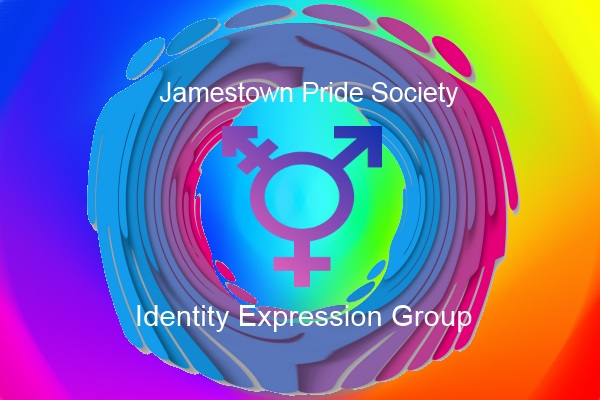Condtions androgen Insensitivity
Page 1 of 1
 Condtions androgen Insensitivity
Condtions androgen Insensitivity
What is androgen insensitivity syndrome?
Androgen insensitivity syndrome is a condition that affects sexual development before birth and during puberty. People with this condition are genetically male, with one X chromosome and one Y chromosome in each cell. Because their bodies are unable to respond to certain male sex hormones (called androgens), they may have mostly female sex characteristics or signs of both male and female sexual development.Complete androgen insensitivity syndrome occurs when the body cannot use androgens at all. People with this form of the condition have the external sex characteristics of females, but do not have a uterus and therefore do not menstruate and are unable to conceive a child (infertile). They are typically raised as females and have a female gender identity. Affected individuals have male internal sex organs (testes) that are undescended, which means they are abnormally located in the pelvis or abdomen. Undescended testes can become cancerous later in life if they are not surgically removed. People with complete androgen insensitivity syndrome also have sparse or absent hair in the pubic area and under the arms.
The partial and mild forms of androgen insensitivity syndrome result when the body's tissues are partially sensitive to the effects of androgens. People with partial androgen insensitivity (also called Reifenstein syndrome) can have normal female sex characteristics, both male and female sex characteristics, or normal male sex characteristics. They may be raised as males or as females, and may have a male or a female gender identity. People with mild androgen insensitivity are born with male sex characteristics, but are often infertile and tend to experience breast enlargement at puberty.
How common is androgen insensitivity syndrome?
Complete androgen insensitivity syndrome affects 2 to 5 per 100,000 people who are genetically male. Partial androgen insensitivity is thought to be at least as common as complete androgen insensitivity. Mild androgen insensitivity is much less common.What genes are related to androgen insensitivity syndrome?
Mutations in the AR gene cause androgen insensitivity syndrome. This gene provides instructions for making a protein called an androgen receptor. Androgen receptors allow cells to respond to androgens, which are hormones (such as testosterone) that direct male sexual development. Androgens and androgen receptors also have other important functions in both males and females, such as regulating hair growth and sex drive. Mutations in the AR gene prevent androgen receptors from working properly, which makes cells less responsive to androgens or prevents cells from using these hormones at all. Depending on the level of androgen insensitivity, an affected person's sex characteristics can vary from mostly female to mostly male.Read more about the AR gene.
How do people inherit androgen insensitivity syndrome?
This condition is inherited in an X-linked recessive pattern. A condition is considered X-linked if the mutated gene that causes the disorder is located on the X chromosome, one of the two sex chromosomes in each cell. In genetic males (who have only one X chromosome), one altered copy of the gene in each cell is sufficient to cause the condition. In genetic females (who have two X chromosomes), a mutation must be present in both copies of the gene to cause the disorder. Males are affected by X-linked recessive disorders much more frequently than females.About two-thirds of all cases of androgen insensitivity syndrome are inherited from mothers who carry an altered copy of the AR gene on one of their two X chromosomes. The remaining cases result from a new mutation that can occur in the mother's egg cell before the child is conceived or during early fetal development.
Where can I find information about diagnosis or management of androgen insensitivity syndrome?
These resources address the diagnosis or management of androgen insensitivity syndrome and may include treatment providers.- Gene Review: Androgen Insensitivity Syndrome

- Genetic Testing Registry: Androgen resistance syndrome

- MedlinePlus Encyclopedia: Androgen Insensitivity Syndrome

- MedlinePlus Encyclopedia: Intersex

- MedlinePlus Encyclopedia: Reifenstein Syndrome

You might also find information on the diagnosis or management of androgen insensitivity syndrome in Educational resources and Patient support.
General information about the diagnosis and management of genetic conditions is available in the Handbook. Read more about genetic testing, particularly the difference between clinical tests and research tests.
To locate a healthcare provider, see How can I find a genetics professional in my area? in the Handbook.
Where can I find additional information about androgen insensitivity syndrome?
You may find the following resources about androgen insensitivity syndrome helpful. These materials are written for the general public.- MedlinePlus - Health information (4 links)
- Genetic and Rare Diseases Information Center - Information about genetic conditions and rare diseases (2 links)
- Educational resources - Information pages (8 links)
- Patient support - For patients and families (3 links)
You may also be interested in these resources, which are designed for healthcare professionals and researchers.
- Gene Reviews
 - Clinical summary
- Clinical summary - Genetic Testing Registry - Repository of genetic test information (1 link)
- [url=http://www.ncbi.nlm.nih.gov/pubmed?term=%28Androgen-Insensitivity Syndrome[MAJR]%29 AND %28androgen insensitivity syndrome[TIAB]%29 AND english[la] AND human[mh] AND "last 1080 days"[dp]]PubMed
 [/url] - Recent literature
[/url] - Recent literature - OMIM
 - Genetic disorder catalog
- Genetic disorder catalog
What other names do people use for androgen insensitivity syndrome?
- AIS
- Androgen receptor deficiency
- Androgen resistance syndrome
- AR deficiency
- DHTR deficiency
- Dihydrotestosterone receptor deficiency
- Testicular feminization
For more information about naming genetic conditions, see the Genetics Home Reference Condition Naming Guidelines and How are genetic conditions and genes named? in the Handbook.
What if I still have specific questions about androgen insensitivity syndrome?
Ask the Genetic and Rare Diseases Information Center .
.Where can I find general information about genetic conditions?
The Handbook provides basic information about genetics in clear language.- What does it mean if a disorder seems to run in my family?
- What are the different ways in which a genetic condition can be inherited?
- If a genetic disorder runs in my family, what are the chances that my children will have the condition?
- Why are some genetic conditions more common in particular ethnic groups?
These links provide additional genetics resources that may be useful.
What glossary definitions help with understanding androgen insensitivity syndrome?
androgens ; cell ; chromosome ; deficiency ; dihydrotestosterone ; egg ; gene ; genitalia ; gynecomastia ; hermaphrodite ; infertile ; inherited ; mutation ; new mutation ; pelvis ; protein ; puberty ; receptor ; recessive ; sex chromosomes ; syndrome ; testes ; testosterone ; X-linked recessivePage 1 of 1
Permissions in this forum:
You cannot reply to topics in this forum|
|
|

 Home
Home




» JPS/IEG Meeting February 1, 2016
» Jamestown Pride Society Public Meetings
» IEG Meeting February 8, 2016
» JPS/IEG Year Beginning Meeting
» Jamestown Pride Society Year Beginning Meeting
» IEG Meeting January 11th
» Introducing myself
» Transgender Day of Remembrance Walk